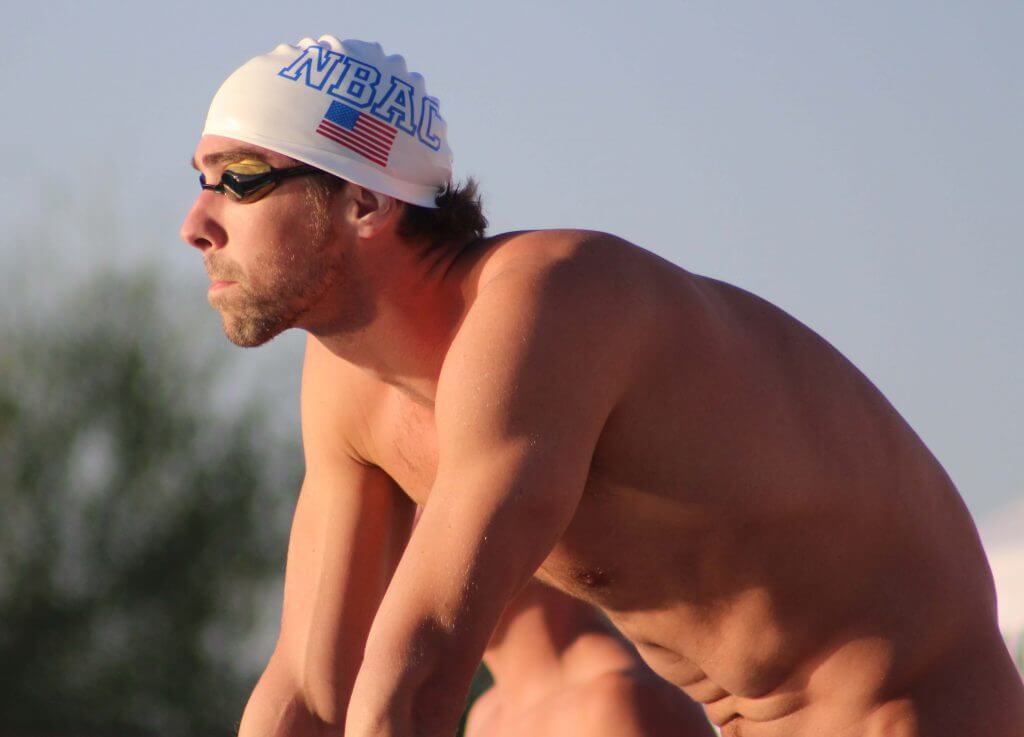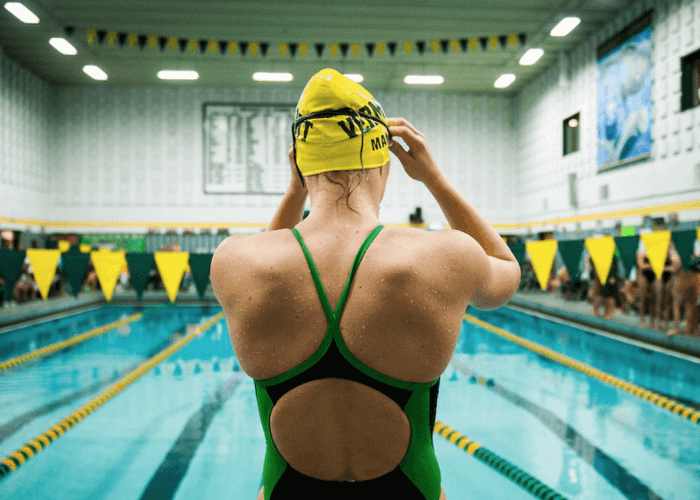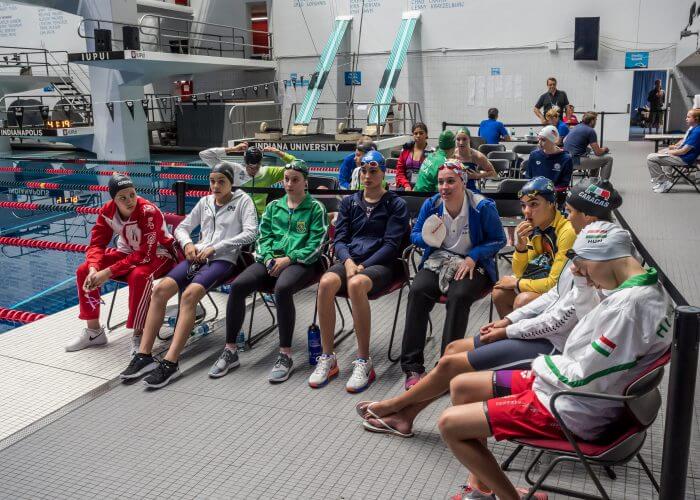Visualization: An Underrated Secret to Success

By Norah Hunt, Swimming World College Intern.
The mid-season meet is upon us. For most swimmers, this event is the first time they are able to suit up and rest in the new season; the first time they are able to swim a race the way it will likely feel in February and March. Mid-season meets are a blast because they are all about fast swimming, without the pressure that the end of the season meets inevitably bring. Many athletes are looking for ways to step up their mental game heading into this meet, a way to give themselves some sort of advantage over their competitors. Confidence can go a long way, and one of the best ways to build confidence about a race is to practice visualization.
What is visualization?
Visualization is a very broad term that describes a simple concept: forming a mental image of something. Visualization could be called day dreaming, but in terms of athletics, it is daydreaming with a purpose. Visualization can be as casual as thinking about your upcoming meet during warm up at practice, or it can be as precise as closing your eyes and imagining your whole race, from start to finish.

Photo Courtesy: Brian Jenkins-UVM Photo
What is the science behind visualization?
Simply put, visualization helps increase confidence. Increased confidence leads to lower anxiety about a race, which leads to better performance. However, there are actually physiological benefits to visualization as well. One study found increased muscle strength in athletes that performed visualization that involved muscle contractions. These athletes envisioned their race so precisely that they actually clenched their muscles, and regular practice increased their strength.
How do I practice visualization?
The best thing about visualization is that there are many different ways to do it right. While one method may certainly work better for some people, it is fun to play around with different techniques to figure out which method promotes maximum confidence.
Most experts agree that the best place to start is with closed eyes. Some people prefer to lay down, but some people then worry about falling asleep! Play around with it, and find out which way works best for you. Picture yourself at the all important meet (if you have never been to the pool before, look up pictures online), and picture yourself behind the blocks. Imagine what suit you will wear, and imagine going through your pre race rituals. Imagine diving in for your race, and make sure to picture best possible scenario. Your start is smooth, your underwaters are fierce, and you have the perfect amount of easy speed. Imagine the competitors trailing behind, or imagine a tight race that you ultimately win. Remember to be positive, mentally envisioning a bad race is no help.
Many experts also recommend playing around with perspective. While it is certainly helpful to imagine your race from your own point of view, it can also be fun to visualize from the point of view of a bystander. This allows you to watch your race from an objective perspective, and it is also an extremely helpful way to completely visualize the moment. It is completely fine if visualization does not come naturally on the first try. It is a mental skill that takes time to develop, but knowing how to visualize is a crucial skill for swimmers to have.

Photo Courtesy: Peter H. Bick
A Warning
While visualization is an incredible tool, it is best done before race day. When a swimmer is actually at the big meet, it is best to live completely in the moment, and not visualize what will happen later on. At that point, it is time to stop thinking about the race and actually tackle it!
All commentaries are the opinion of the author and do not necessarily reflect the views of Swimming World Magazine nor its staff. All swimming and dryland training and instruction should be performed under the supervision of a qualified coach or instructor, and in circumstances that ensure the safety of participants.




Gabby Loeck read this. Who comes to mind ??
Whitney Knowlton-Wardle
One of the best lessons I taught my swimmers
Matthew Gougeon
Melissa Malkan Healy
Catherine Maxey
Read Evonne Stehr
Natalie Hunt
Tay Thomas